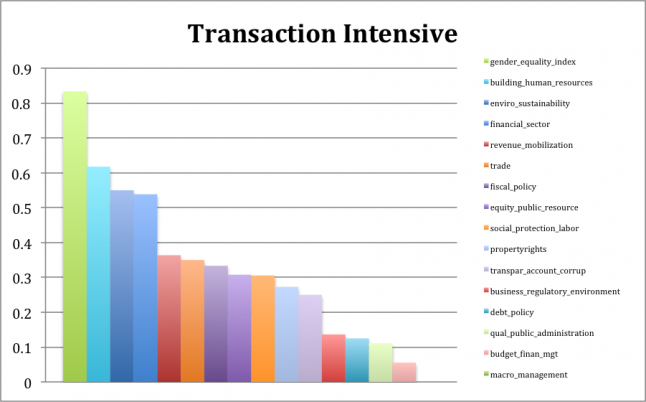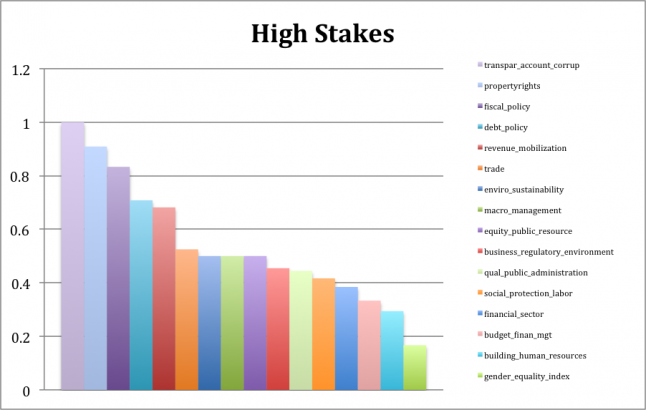Development requires resources, but it also requires policy and institutional reform. One has to change the way decisions are made, resources are distributed, investments are monitored and evaluated, and so forth. Research suggests that strong policies and institutions not only foster economic growth but also reduce poverty. Strong policies and institutions also seem to increase the effectiveness of development assistance (see various studies here, here, and here).
However, the process of designing and implementing institutional and policy reform is fraught with difficulty and uncertainty, and many well-intentioned reform efforts fail. This begs an important question: what factors account for the success and failure of reform efforts?
Identifying why some reforms succeed and others fail is traditionally evaluated using country-level variables. For example, research suggests that democratic countries pursue reform more often while countries with large natural resource endowments pursue reform less often.
But here’s the thing: much of the existing literature on this subject examines reform efforts from the perspective of a single policy domain, such as health, education, or public financial management. This observation led us to wonder if the nature of change required in some policy domains make reforms in certain areas harder to accomplish than others.
In 2012, Lant Pritchett was invited to deliver the United Nations University World Institute for Development Economics Research (UNU-WIDER) annual lecture where he made a similar argument (watch the video or read the transcript). He proposed that some of the functions of government are much harder to reform than others, and we need to be more nuanced in the way that we think about reforming widely varying government functions.
Over the last several months, we have been exploring whether Pritchett’s so-called “taxonomy of tasks” might help predict the success and failure of reform efforts across different policy domains. Pritchett proposes that we should categorize the core functions (or tasks) that governments should ideally be able to discharge along four key dimensions. These include:
- Transaction intensive: Does a task require actions of many agents or can just a few agents accomplish the reform?
- Locally discretionary: Must agents use personal judgment when implementing a reform task? Some tasks may not be completely uniform and may require different applications depending on certain conditions.
- High stakes: Are agents likely to be tempted to pay high prices to influence the actions or decisions of those implementing the reform? Some tasks are more prone to inducing corruption.
- Requires innovation: Is innovation required to implement a task successfully? There may not be a prescribed path to follow for performing certain complicated tasks.
We have now coded every one of the tasks enumerated in the World Bank’s Country Policy and Institutional Assessment (CPIA) along these four dimensions. Each of the CPIA’s sixteen policy domains includes a bundle of unique tasks. We have also aggregated these task-specific scores into policy domain-specific scores.
Our preliminary findings support Pritchett’s argument that tasks and policy domains vary significantly across these four dimensions. Figure 1 (below) shows that some policy domains, such as health and education, are highly transaction-intensive, whereas other policy domains (e.g. monetary and exchange rate policy) are not. Similarly, Figure 2 (below) demonstrates that some policy domains are “higher stakes” than others.
Figure 1

Figure 2

Our initial findings also suggest that these different policy domain attributes may be strong predictors of whether or not governments actually succeed in implementing reforms. Stay tuned for further updates on this new line of research.

